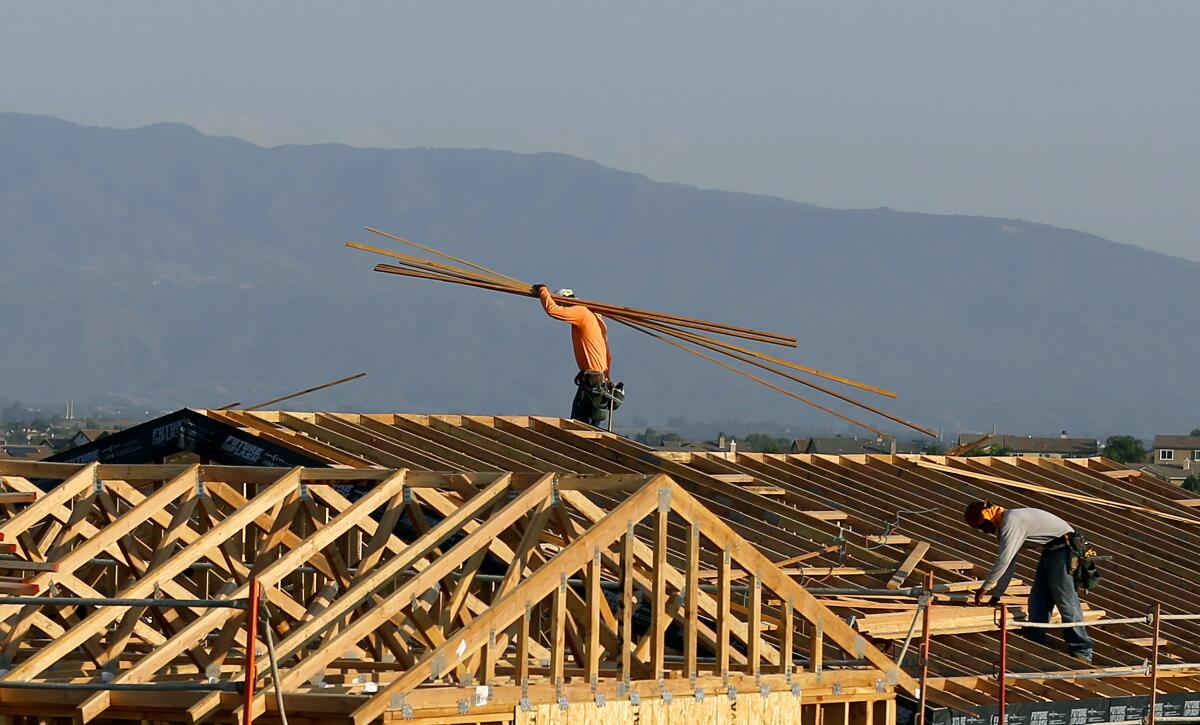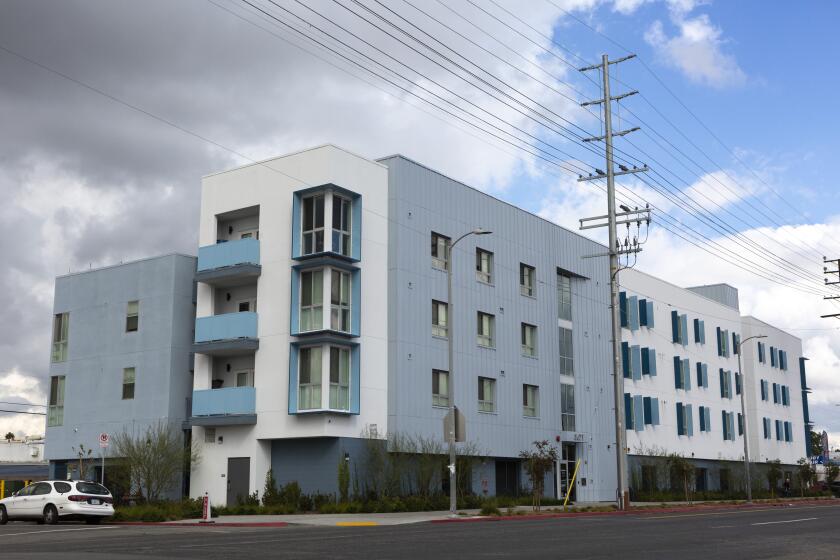Editorial: Californians say ‘yes’ to housing measures. Mostly

- Share via
Forget about the red wave or the blue wave. California, it appears, had a housing wave on election day.
Up and down the state, voters largely backed pro-housing ballot measures, including taxes and bonds to build affordable housing, and rejected several measures aimed at making it harder to build.
That’s good news for a state still mired in a housing crisis that is fueling poverty and inequality and hindering economic growth. And it’s a welcome sign that voters are still eager to do more, even after the Legislature and Gov. Gavin Newsom have passed ambitious laws to spur housing construction and after many communities have passed earlier tax measures to accelerate affordable housing construction.
The Newsom administration’s first target is San Francisco, the super-liberal city that may be the NIMBYist of them all.
More than 50 housing-related measures were on the Nov. 8 ballot, according to an analysis by UC Berkeley’s Terner Center for Housing Innovation. Many of those appear likely to pass based on early returns.
“California has been in the housing crisis for some time now, and people are really feeling the impacts of that. Families are separating to different counties or states. It’s leading to higher cost of services,” said Muhammad Alameldin, policy associate with the Terner Center. “Housing is having this compound effect that is affecting general affordability for people.”
Many of the ballot measures were general sales tax increases put on the ballot by local elected officials to ease the housing crunch in their communities.
In Northern California, voters in Emeryville, Walnut Creek, East Palo Alto and Vallejo all supported tax hikes to fund affordable housing and homelessness services, according to KQED. Likewise, El Cajon and Solana Beach in San Diego County were on their way to passing sales tax increases that would, in part, fund homelessness intervention and assistance.
The United to House L.A. measure would create ongoing funding for the city of L.A. to create desperately needed affordable housing.
In Los Angeles and Santa Monica, it looks like measures to increase real estate transfer taxes on multimillion-dollar properties are heading for passage (though there are still lots of uncounted ballots). The revenue from both measures would be used for homelessness prevention and affordable housing construction in those cities.
Berkeley and San Francisco were poised to pass taxes on vacant homes, as part of an effort to generate revenue and discourage property owners from keeping residential units off the market.
And voters in Los Angeles, Sacramento, Oakland, Berkeley and South San Francisco passed measures that should make it easier to develop more low-income units, the Sacramento Bee reported. These so-called Article 34 authorizations are necessary because an archaic and racist provision in the California Constitution requires that cities get voter approval before they build “low-rent housing” funded with public money. (Voters will have their chance to scrap this provision in 2024.)
But there was more than money at stake on Tuesday. Several cities had ballot measures that were designed to block certain housing developments or make it harder to approve future housing projects. In Laguna Beach, voters rejected a measure that would have required voter approval for larger housing and commercial projects. And in Menlo Park, voters denied a measure that would have prohibited the development of multifamily housing on a single-family lot without a citywide vote. The measure was prompted by a proposal to build affordable housing for teachers on an empty lot.
Of course, the sentiment wasn’t universal. Redlands voters rejected a measure that would have allowed taller, denser housing in the city’s downtown and near a transit center.
Still, polls have repeatedly shown Californians strongly support more housing. Some 76% of adults surveyed back government policies that would increase the amount of affordable housing for lower- and middle-income renters, according to a Public Policy Institute of California report released this month. And 73% favor government policies to ease permit requirements and allow more housing to be built so lower- and middle-income people can afford to buy a home.
Californians want more housing that everyone can afford, and they proved that at the polls this week.
More to Read
A cure for the common opinion
Get thought-provoking perspectives with our weekly newsletter.
You may occasionally receive promotional content from the Los Angeles Times.












